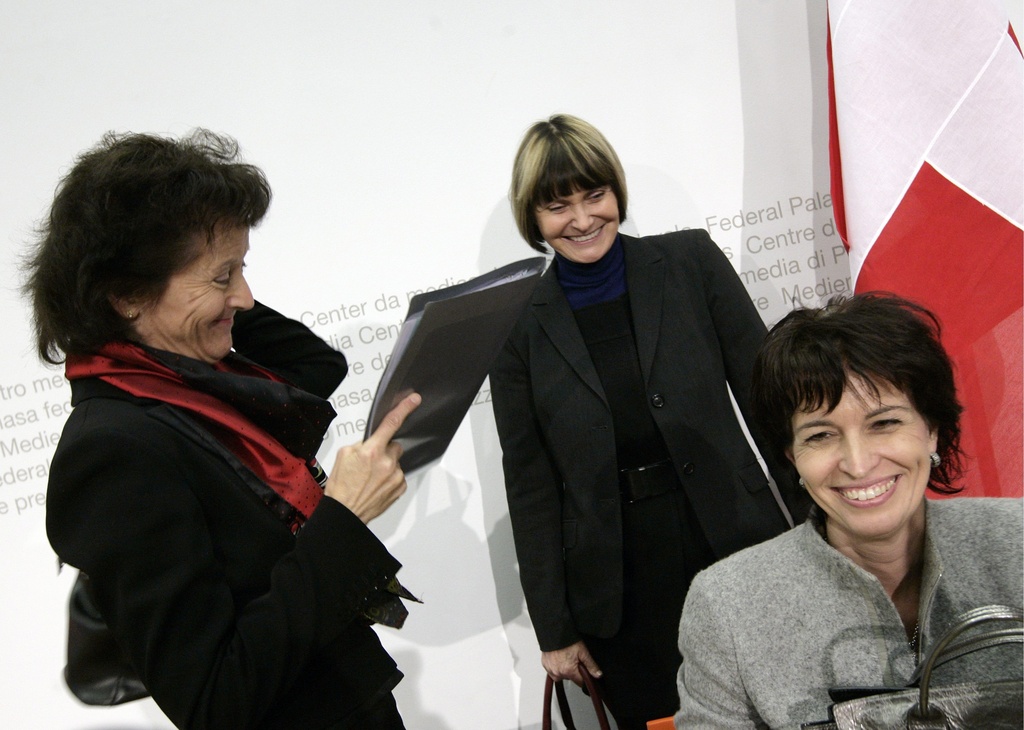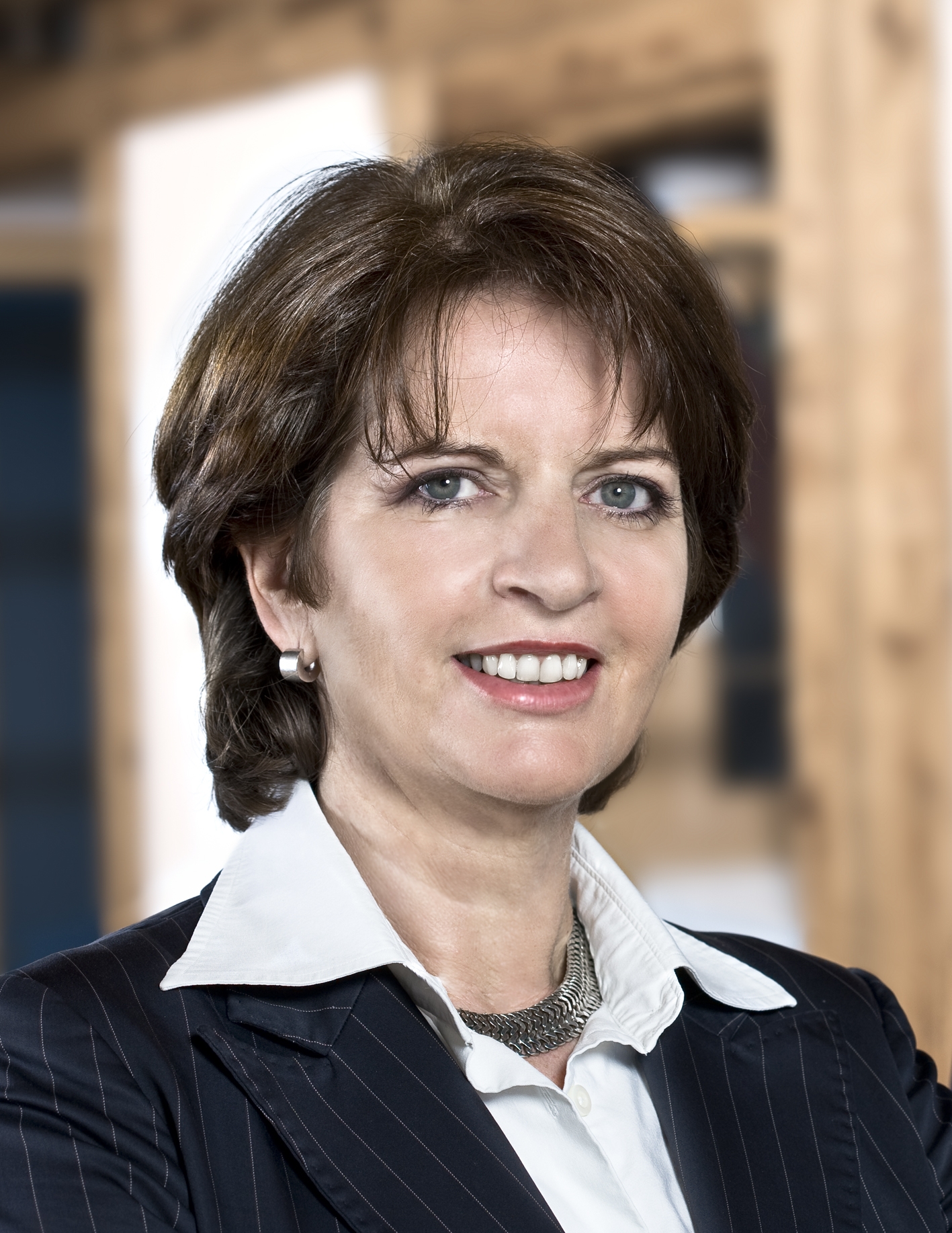Should there be a female majority in cabinet?

Speculation has been mounting that Switzerland could chalk up a first in its political history – four to five women in its seven-member cabinet.
This would make it only the second European country to have a female cabinet majority and would come almost 40 years after women finally got the vote. But observers say that the big fuss being made over the topic is symptomatic of the fact that equality hasn’t been reached yet.
Transport Minister Moritz Leuenberger, the longest-serving cabinet member, has announced that he is to leave the government – presently three women and four men – at the end of the year.
Two candidates from his centre-left Social Democrats are favourites to succeed him: consumer rights champion Simonetta Sommaruga and parliamentary long-timer Jacqueline Fehr. Also said to be in with a chance is the current speaker of the House of Representatives Pascale Bruderer.
Beleaguered Finance Minister Hans-Rudolf Merz could also go and be replaced by Karin Keller-Sutter, a St Gallen government member.
If one or two of these women join Swiss President Doris Leuthard, Justice Minister Eveline Widmer-Schlumpf and Foreign Minister Calmy-Rey, Switzerland would have a female cabinet majority, a situation that only Finland currently enjoys in Europe.
Reaction in the political and media world has been mixed, ranging from celebration to fears of the “feminisation” of power and that too many women would result in “chaos” or “catfights”.
Christian Democrat parliamentarian Kathy Riklin is one of those who welcomes the move.
People ready?
But she remains sceptical over whether people would, deep down, accept a female majority, despite a recent survey showing 76 per cent of the population would be in favour.
“I believe Switzerland is in principle ready for this majority,” she told swissinfo.ch. “But should any problems arise, also work differences, you might hear: ‘typical women, they don’t have it all under control’ or ‘they don’t understand it’ or ‘they don’t represent the economy enough or our interests’”.
Not all men in parliament are comfortable with the idea, she says, but most would not go public with that view.
In any case, Riklin thinks that having five women in cabinet is probably a one-off situation. “We also had [a majority] four women in the Zurich government. Now there are only two,” she said.
The parliamentarian believes the uniqueness of the situation explains why there is so much discussion.
Much ado
But some, including former cabinet minister Elisabeth Kopp – the first to be elected in 1984 – have questioned why it should be an issue at all.
Writing in last Sunday’s NZZ am Sonntag, Kopp said she would only see progress should a person’s fitness for the job be discussed – and not their sex.
Political expert Regula Stämpfli is also puzzled by the fuss.
“It’s just the last symbolic thing, having a female cabinet majority, as Switzerland only introduced women’s suffrage in 1971 as one of the last countries in Europe, and in the world,” she told swissinfo.ch.
But Stämpfli also sees a backlash, especially in the media, against women’s achievements in the last 20 years. Suddenly there is a problem with having a female majority, but there have never been such sentiments towards men, she said, echoing a point also made by Kopp.
Male economic power
Outwardly Switzerland looks to have made progress in politics – with 20-30 per cent female parliamentarians and two female speakers of parliament – but there is a downside, she says.
“It shows that politics has lost its power to other institutions such as the media, the financial world and multinational companies where women are not only in a minority in Switzerland, but don’t even reach ten per cent.”
There is certainly no feminisation of power, she argues.
Riklin wonders whether power would not move away to other sectors, through, for example, privatisation, should women dominate politics.
The last word on the matter goes – suitably or not – to a man. In an editorial, Christian Dorer, editor-in-chief of the Aargauer Zeitung newspaper, said that the fact that Switzerland could be only the second European country to be ruled by a female majority showed that women were getting the top jobs because they were the best and not because a mix was needed. And he concluded:
“For those afraid of having five female cabinet members: a female dominated cabinet cannot possibly be any more uncooperative and at odds than the current male-dominated one.”
Isobel Leybold-Johnson, swissinfo.ch
Higher education teaching: universities: 34.1%; polytechnics: 37.9%
Parliament: House of Representatives: 29.5% (2007); Senate: 21.7%
Work: full-time employment: 29.5%; part-time: 79.2%; in management positions: 33.4%
Strategic boards of the 20 Swiss Market Index (SMI) companies: c.12% (2008).
Strategic boards of the 100 largest companies in Switzerland: 6.7%.
Source: Federal Office of Statistics, swissinfo.ch
1971: Majority of Swiss men vote to accept women’s suffrage. In the next elections, 10 women elected to House of Representatives.
1990: Canton Appenzell Inner Rhodes forced by Swiss Federal Tribunal to give
women the vote.
1999: Ruth Dreifuss becomes first female Swiss president (an honorary, rotating position).
2003: First female majority in cantonal government in Zurich, with four women.
2003: Ruth Metzler-Arnold is not re-elected to the cabinet, leaving only one woman. Women protest on the street.
2008: Eveline Widmer-Schlumpf’s election means there are three women in the cabinet for the first time.
2010: For the first time women occupy the three highest political positions in Switzerland: Swiss President and the two speakers of parliament.

In compliance with the JTI standards
More: SWI swissinfo.ch certified by the Journalism Trust Initiative




You can find an overview of ongoing debates with our journalists here. Please join us!
If you want to start a conversation about a topic raised in this article or want to report factual errors, email us at english@swissinfo.ch.